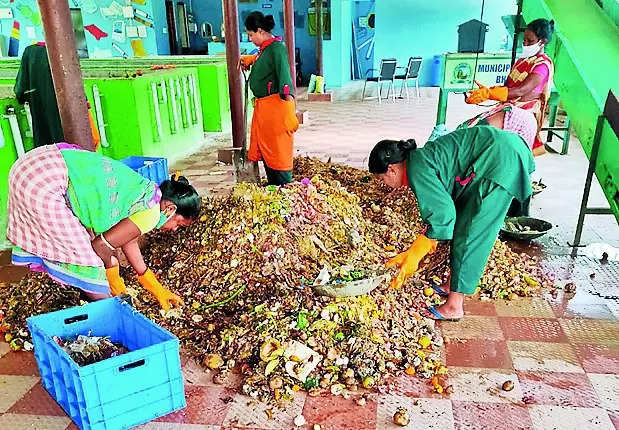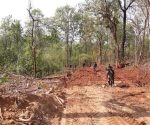Bio-Methane Plant: Construction of Bio-Methane Plants Expected to Begin After Oil India Limited (OIL) Shows Interest | Bhubaneswar News

Bhubaneswar: Construction of a proposed waste-to-energy bio-methane plant in the city is expected to take off now after the Bhubaneswar Municipal Corporation (BMC) received a detailed project report (DRP) from Oil India Limited (OIL).
Planned in 2022, the project has been facing hurdles because no interested party came forward to participate in the tender for the four plants of 50 tonnes per day (TPD) capacity each.If the bio-methane project gets ready, the city’s municipal waste handling will become easier for the civic body with 200 tonnes out of 600 tonnes generated daily going to the proposed methane plant.
BMC officials said the tender for the bio-methane project has been cancelled several times with no interested party participating in the process. The civic body found that private parties were not interested to take up the project citing low profit margins. According to the plan, four different parties would have taken the responsibility for the four plants in a public-private partnership (PPP) mode. The onus to set up the plant was on them and they would earn from the sale of gas with BMC taking the agreed-upon royalty. “The private parties thought that plants with capacity of 50 TPD each were too small to generate a profit,” said a BMC officer.
Now, with OIL evincing interest to take up all the four projects (200 TPD) alone, it could become viable.
To implement the project, the ground-level sanitation workers of BMC had visited Indore to learn the various way in which they convert waste into energy. The exposure visit helped them learn the entire process, starting from waste segregation at source, handling the green waste, operating the shredding machine, environment in the plant, managing stores and other aspects of a methane gas unit.
The Indore civic body has implemented a successful model of turning the segregated municipal waste into biogas. It is selling the gas and in turn using the amount generated for other works and for different aspects of solid waste management.
The micro composting centres (MCC)s and material recovery facilities (MRF)s of the BMC are processing 60%of the daily generated waste. If the four methane plants start functioning, another 20% of waste can be handled with the rest requiring to be dumped at the temporary transit station, sources said.
Also, the BMC is keen to adopt the process of making paver blocks out of the construction and demolition (C&D) waste generated in the city. Indore has also successfully used seized and recovered C&D waste in making paver blocks.
Planned in 2022, the project has been facing hurdles because no interested party came forward to participate in the tender for the four plants of 50 tonnes per day (TPD) capacity each.If the bio-methane project gets ready, the city’s municipal waste handling will become easier for the civic body with 200 tonnes out of 600 tonnes generated daily going to the proposed methane plant.
BMC officials said the tender for the bio-methane project has been cancelled several times with no interested party participating in the process. The civic body found that private parties were not interested to take up the project citing low profit margins. According to the plan, four different parties would have taken the responsibility for the four plants in a public-private partnership (PPP) mode. The onus to set up the plant was on them and they would earn from the sale of gas with BMC taking the agreed-upon royalty. “The private parties thought that plants with capacity of 50 TPD each were too small to generate a profit,” said a BMC officer.
Now, with OIL evincing interest to take up all the four projects (200 TPD) alone, it could become viable.
To implement the project, the ground-level sanitation workers of BMC had visited Indore to learn the various way in which they convert waste into energy. The exposure visit helped them learn the entire process, starting from waste segregation at source, handling the green waste, operating the shredding machine, environment in the plant, managing stores and other aspects of a methane gas unit.
The Indore civic body has implemented a successful model of turning the segregated municipal waste into biogas. It is selling the gas and in turn using the amount generated for other works and for different aspects of solid waste management.
The micro composting centres (MCC)s and material recovery facilities (MRF)s of the BMC are processing 60%of the daily generated waste. If the four methane plants start functioning, another 20% of waste can be handled with the rest requiring to be dumped at the temporary transit station, sources said.
Also, the BMC is keen to adopt the process of making paver blocks out of the construction and demolition (C&D) waste generated in the city. Indore has also successfully used seized and recovered C&D waste in making paver blocks.















